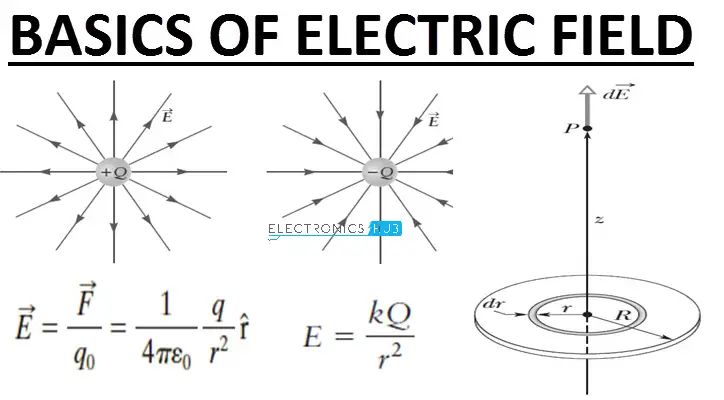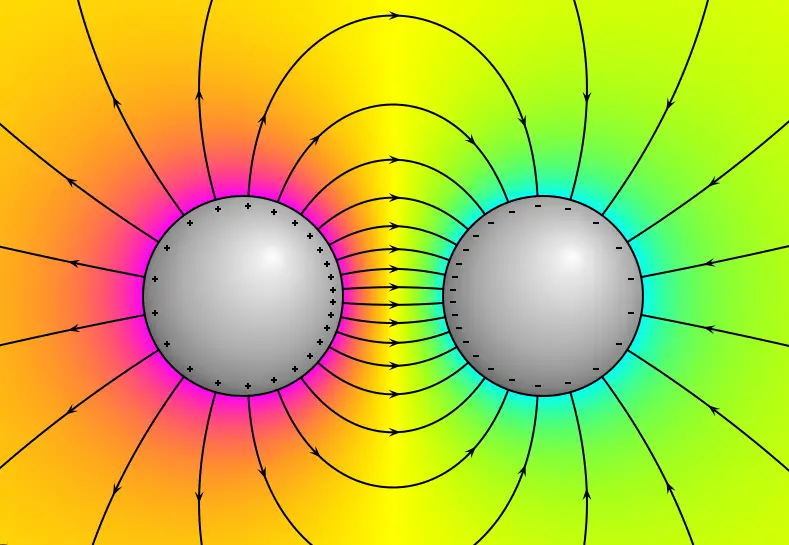Electric potential and electric field are two fundamental concepts in the realm of physics, each playing a pivotal role in understanding how forces interact at a distance in electrical systems. While they are often mentioned together and are interrelated, they have distinct definitions and implications in various physical contexts. Their understanding is crucial not just for academic purposes but also for practical applications across numerous industries.
Electric potential is the work done per unit charge in bringing a test charge from infinity to a point in space, usually measured in volts. The electric field, on the other hand, represents the force per unit charge experienced by a test charge placed in a field, quantified in newtons per coulomb or volts per meter. These two properties describe different aspects of electrical interaction, with the electric field describing the force exerted by electrical charges, and the electric potential representing the potential energy change experienced by a charge in a field.
This topic has deep implications, not only in theoretical physics but also in everyday technology. From the batteries powering devices to the way we model forces in advanced physics, understanding the difference between electric potential and electric field helps in crafting more efficient systems and advancing our capabilities in both energy management and technological innovation.

Basic Concepts
Electric Field
Definition and Explanation
An electric field is a region around a charged particle or object within which a force would be exerted on other charged particles or objects. Fundamentally, this field is a vector field that associates a vector to every point in space. It specifies the electromagnetic force that a charged test particle would experience per unit charge. The strength and direction of this field are crucial for determining how charged objects interact in space.
How It Is Measured
The measurement of an electric field is typically performed using a small test charge, where the force exerted on the charge is assessed in different positions. The strength of the field (E) is calculated by dividing the force (F) by the magnitude of the test charge (q):
- E = F / q
This formula allows researchers and engineers to determine the field strength in newtons per coulomb (N/C) or volts per meter (V/m).
Key Characteristics
- Direction: Points away from positive charges and towards negative charges.
- Strength: Varies inversely with the square of the distance from the charge source.
- Influence: Affects the behavior of other charged objects even without direct contact.
Electric Potential
Definition and Explanation
Electric potential, also known as voltage, quantifies the potential energy a unit charge gains or loses when moved within an electric field. It is a scalar quantity, which means it has magnitude but no direction. The potential at a point in space is defined as the work done by an external force in bringing a unit positive charge from infinity to that point.
Measurement Techniques
Electric potential is measured in volts, where one volt represents one joule per coulomb. Techniques for measuring potential include:
- Voltmeter: Directly measures the potential difference between two points.
- Potentiometric methods: Used in more precise applications, like in laboratories.
Key Characteristics
- Scalar nature: Only magnitude, no direction.
- Reference point: Typically measured relative to the potential at infinity.
- Related to energy: Indicates the potential energy change per unit charge.
Comparative Analysis
Field vs. Potential
Relationship Between the Two
The electric field and electric potential are intimately related. The field is essentially the gradient (or slope) of the electric potential. This relationship can be expressed mathematically as:
- E = -∇V
where ∇V (the gradient of V) describes the rate at which the potential changes with distance. This equation highlights that the electric field points in the direction of decreasing potential.
Visual Representations
Visual tools like diagrams and formulas are crucial for understanding the relationship between electric field and potential. For example:
- Field lines: Lines flowing from higher to lower potential, showing field direction.
- Equipotential lines: Perpendicular to field lines, showing points of equal potential.
Distinctions
Mathematical Differences
Mathematically, while electric potential is a scalar function, the electric field is a vector function. The potential is related to the integral of the electric field across space, which introduces different mathematical complexities and applications.
Conceptual Contrasts
Conceptually, the electric field represents how charged objects influence each other’s motion, while electric potential relates to the energy change involved in moving a charge within this field.
Practical Applications
In Engineering
Use in Electrical Circuits
Electric fields and potentials are fundamental in designing electrical circuits. Understanding these concepts helps engineers determine how voltages distribute across components, influencing current flow and circuit functionality.
Impact on Design and Functionality
- Safety: Ensuring safe voltage levels across equipment.
- Efficiency: Optimizing circuit design for minimal energy loss.
In Daily Technology
Examples in Household Electronics
Electric fields and potentials govern the operation of devices like TVs, smartphones, and microwaves. Their efficient management ensures device functionality and longevity.
Relevance in Communication Devices
In communication technology, these principles help in the design of antennas and receivers that can operate effectively over various frequencies and conditions, ensuring clear signal transmission and reception.

Theoretical Implications
Physics Theories
Role in Classical Mechanics
Electric fields and potentials are foundational in classical mechanics, providing insights into how forces such as gravity and electromagnetism interact. These concepts explain the behavior of objects under various force conditions, such as planetary orbits influenced by gravitational fields analogous to electric fields.
Influence on Modern Physics Theories
In modern physics, the study of electric fields and potentials has paved the way for theories like electromagnetism, quantum mechanics, and general relativity. These concepts help describe not only the macroscopic interactions but also the atomic and subatomic level phenomena which are crucial for advanced scientific theories.
Mathematical Frameworks
Equations Involving Both Concepts
Several key equations in physics incorporate both electric fields and potentials:
- Gauss’s Law: Relates the electric field in a region to the charge distribution.
- Poisson’s Equation and Laplace’s Equation: These are fundamental for calculating potentials in different media.
Solving Problems in Physics Using These Concepts
Understanding these equations allows physicists and engineers to solve complex problems, from designing safer electrical equipment to simulating cosmic phenomena in astrophysics. These applications underscore the versatility and necessity of mastering electric fields and potentials.
Advanced Concepts
Field Lines and Equipotential Lines
Description and Significance
- Field lines: Imaginary lines that represent the direction of the electric field. These lines point away from positive charges and toward negative ones.
- Equipotential lines: Lines where the potential is constant. They are always perpendicular to electric field lines.
How They Interact and Differ
While field lines give the direction of the force exerted by the field, equipotential lines indicate areas where a charge will experience no net force in the direction parallel to the potential gradient. Their perpendicular nature helps visualize the field’s behavior in complex setups.
Influence in Quantum Mechanics
Quantum Effects on Electric Fields and Potentials
In quantum mechanics, electric fields and potentials explain phenomena such as tunneling and barrier penetration, which are essential for the operation of devices like semiconductors and superconductors.
Practical Examples of Quantum Influences
Devices like the quantum dot and the scanning tunneling microscope (STM) rely on the principles of electric fields and potentials at the quantum level, showcasing their fundamental role in the development and advancement of technology.
Global Impact
Environmental Considerations
Electric Fields and Potentials in Natural Phenomena
Electric fields and potentials play significant roles in natural phenomena such as lightning, where differences in electric potential lead to massive discharges, and the Earth’s magnetic field, which is influenced by solar winds.
Environmental Monitoring and Protection
These concepts are crucial for developing technologies used in environmental monitoring, such as satellite systems that track storm developments and electrical disturbances in the atmosphere.
Educational Importance
Teaching These Concepts in Schools and Universities
A solid understanding of electric fields and potentials is vital for students in STEM fields. Education systems globally focus on these fundamental physics concepts to prepare students for more advanced studies and careers in science and engineering.
Resources and Methods for Effective Learning
- Interactive simulations: Tools like PhET Interactive Simulations help students visualize and manipulate electric fields and potentials.
- Laboratory experiments: Hands-on experiments using Van de Graaff generators or Leyden jars allow students to see these forces at work.
- Online platforms: Websites and online courses offer accessible resources for learning these concepts at various educational levels.
Frequently Asked Questions
What is Electric Potential?
Electric potential, often referred to as voltage, is the potential energy per unit charge at a specific point in an electric field. It represents the work needed to move a charge against an electric field, which is essential in calculating energy in electrical circuits.
How is Electric Field Measured?
An electric field is measured by the force it exerts per unit charge, in units of newtons per coulomb (N/C) or volts per meter (V/m). It is typically determined using test charges and observing the forces they experience under various field strengths.
Can Electric Field Exist Without Electric Potential?
While electric fields and electric potentials often coexist, there can be situations where an electric field exists without a change in electric potential, such as in a uniform electric field between two parallel plates.
How Do Electric Fields and Potentials Affect Each Other?
Electric fields and potentials are directly related through the concept of electric flux. A change in electric potential across a space indicates a field, whereas the electric field is a gradient that describes how the potential changes with distance.
What is the Importance of These Concepts in Modern Physics?
Understanding electric fields and potentials is crucial for the study of electromagnetism, one of the four fundamental forces in physics. These concepts underpin much of modern technological advances, from the design of electrical devices to the theories of quantum mechanics.
Conclusion
In summary, the distinctions between electric potential and electric field are not just academic; they form the backbone of much of modern technology and theoretical physics. While the electric field describes how charged particles influence each other at a distance, electric potential deals with the potential energy changes within such fields. Both concepts are integral to the design and understanding of electrical systems, from the simplest circuits to the most advanced scientific models.
By delving into these principles, one can appreciate the complexities of electrical interactions and their applications. As technologies evolve and our theoretical understanding deepens, the roles of electric potential and electric field will continue to be pivotal in both education and innovation, shaping the future of technology and energy management.

